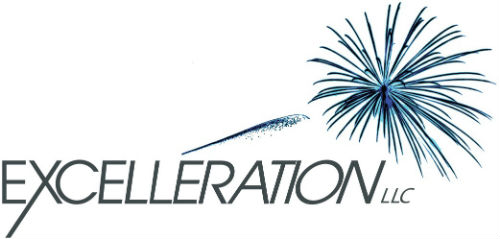Return on Investment
A Hay Group study of Fortune 500 companies found that 21-40% utilize executive coaching. Companies such as Accenture, American Express, Booz Allen Hamilton, Capital One, Dupont, Ericsson, Home Depot, Microsoft, Nokia, and Verizon use coaching. In many companies, coaching is offered as a standard leadership development tool for talented up-and-comers. Coaches support clients in gaining insights and translating those insights into action. Coaching is tailored to the individual, so depending upon the individual’s personal and professional circumstances, the coaching will have greater or lesser impact on the firm as a whole. There are four levels of coaching, with the higher levels having greater organizational impact. Given the high cost of turnover in law firms, however, coaching which increases the level of personal satisfaction will still impact substantially the firm’s bottom line. Each level expands and builds upon the skills addressed in the lower levels. Over time, clients may move through and be coached at various levels.
Level 1 – Personal Effectiveness
- Remaining calm and productive under any circumstances
- Setting priorities and managing time accordingly
- Gaining clarity and maintaining commitment to change
Example: Jonathan was working at the Department of Justice for two years and has just been hired as an associate at a large law firm. He is very stressed by the demands of the new position, and as a result has stopped going to the gym, stopped eating proper meals and gets very little sleep. His coach would work with him on setting priorities, improving time management, developing better organizational skills, becoming more centered, attaining goals in a timely manner, and communicating effectively with supervisors.
Level 2 – Interpersonal Relationships
- Communicating effectively on uncomfortable or unfamiliar topics
- Listening to others and responding appropriately
- Moving beyond fears that impact ability to work with others
Example: Jane is a fourth year associate in the tax division of a major law firm, and she wants to be a partner one day. She has attended several seminars on business development. So she knows in theory how to network, and has even memorized her 30-second commercial to use with prospective clients. Her mentor at the firm has been encouraging her to attend networking events, but every time she goes she finds herself stuck in a corner with a divorce lawyer complaining about his vindictive clients. Her coach would work with her to create an empowering context for sales, practice speaking into the listening of others, and address any barriers she may have preventing her from communicating effectively.
Level 3 – Leadership Skills
- Connecting and aligning actions with personal values
- Enhancing flexibility and skill to create a common vision
- Developing intuition to expand problem solving capabilities
Example: Zanita is an 8th year associate and an ethnic minority. She works hard, communicates effectively, and is on the verge of qualifying for partnership. She is also considering leaving the firm because of her pregnancy. The firm offers a four-day work week for mothers, but from what Zanita has observed, the women end up doing the same amount of work for reduced pay or find themselves excluded from the interesting cases. Her coach would work with her to define what she really wants for her work and family life and support her in creating a structure that meets those needs. This could include working with law firm management to restructure existing policies, engaging with other attorneys in the firm to shift the corporate culture, or making requests and partnering with others to find solutions.
Level 4 – Original Action
- Causing innovative change
- Sustaining clear commitment to new possibilities
- Seeing and working with the big picture
Example: Henry has been a litigation partner for 22 years. He is passionate about the law, is highly respected in his field and is often asked to speak at bar association-sponsored events. Henry is thinking about retiring or moving to another firm, citing frustration with firm politics, poor firm management and a business culture that values money over all else. Henry believes that many of the firm’s problems stem from the way management positions are filled. Since time spent managing is not billable and produces no new business, any time spent managing is essentially a volunteer activity. Henry may work with his coach to create awareness, inspire others with a vision of what is possible, and present alternatives in a way that empowers others and calls them to action. Henry would get support from his coach in maintaining commitment to a specific vision while concurrently listening to alternate visions and opposing views.
Return to Frequently Asked Questions or Contact me for more information.

